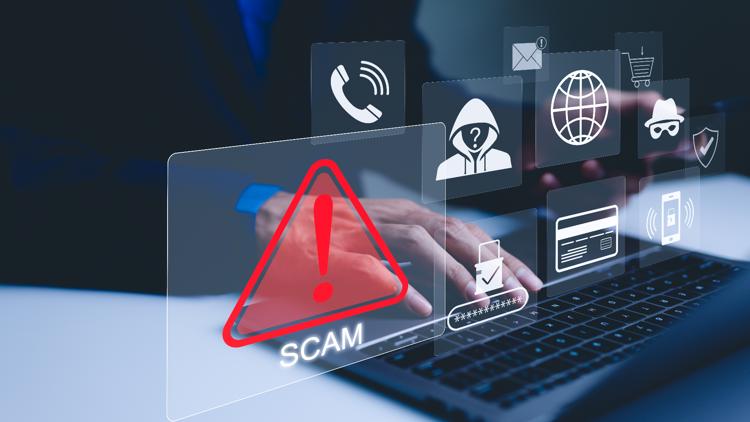NORFOLK, Va. — The Internal Revenue Service’s (IRS) ninth annual National Tax Security Awareness Week kicked off on Cyber Monday this year, and the agency and its Security Summit partners are warning taxpayers and tax professionals of scams that could compromise their sensitive data and lead to identity theft.
According to IRS Commissioner Danny Werfel, the holiday shopping season is prime time for scammers to target people with ever-evolving and increasingly sophisticated phishing emails to dupe them into disclosing their addresses, Social Security numbers, bank account numbers, credit card numbers or passwords.
“Taxpayers should use extra caution this holiday season to protect their valuable personal and financial information, whether shopping online or clicking on links in email and other messages,” said Werfel. “A little extra caution can protect taxpayers’ confidential information and reduce the risk of identity theft in the upcoming filing season.”
The IRS compiled a list of a few types of scams they've seen as well as tips to avoid losing personal, financial and tax information, below:
False Delivery Service Messages
Victims receive a text or email claiming to be from a company or business informing them a delivery can’t be made, along with a link to click to reschedule. In reality, the link represents a form of phishing that attempts to steal personal information or download malware. This is known as a smishing scam, a type of phishing scam involving SMS/texts. Its prevalence is expected to intensify during the holidays.
Pretend Tax Industry Emails
Victims receive an email from the IRS or others in the tax industry with unexpected, good news, such as a tax refund. Other versions involve telling people they have a tax bill or have tax documents available to download. This is a spear phishing scam, a specific type of phishing scam that bypasses emailing large groups at an organization, instead identifying potential victims and delivering a more realistic email known as a “lure.” Scammers can pose as potential clients for a tax professional, luring the practitioner into sharing sensitive information. It is another common scam expected to intensify soon as the holiday season comes to a close, and people gear up for the upcoming tax season.
Clone phishing
This is a newer type of phishing scam that clones a real email message and resends it to the original recipient pretending to be the original sender. The new message will have either an attachment that contains malware or a link that tries to steal information from a recipient.
Whaling
Whaling attacks are very similar to spear phishing, except these attacks are generally targeted at leaders or other executives with access to large amounts of information at an organization or business. Whaling attacks can target people in payroll offices, human resource personnel and financial offices as well as leadership.
Holiday shopping and throughout the year safety tips:
- Shop at online sites with web addresses that begin with the letters “https:” the “s” stands for secure communications. Also, look for a padlock icon in the browser window.
- Don't shop on unsecured public Wi-Fi in places like a mall or restaurant.
- Ensure security software is updated on computers, tablets and mobile phones.
- Watch out and help protect the devices of family members who may not be technologically savvy, a wide range that goes from young children to older adults.
- Make sure anti-virus software for computers has a feature to stop malware, and that there is a firewall enabled to prevent intrusions.
- Use strong, unique passwords for online accounts.
- Use multi-factor authentication whenever possible.
Reporting scams
If a taxpayer believes their personal information is being used to file fraudulent tax returns, they should consider filing Form 14039 online, or complete the paper Form 14039, Identity Theft Affidavit, then print and mail it or fax it to the IRS.
“People need to be extra careful during the holidays and during tax season,” Werfel said. “Identity thieves and tax scammers are shrewd and take advantage of what is on people’s minds, particularly during busy times of the year like the holidays. Remember, don’t click on anything unknown, even if you just ordered gifts and you’re expecting packages to come to your door soon. Double-check before you click.”
Visit the IRS website for additional information.



